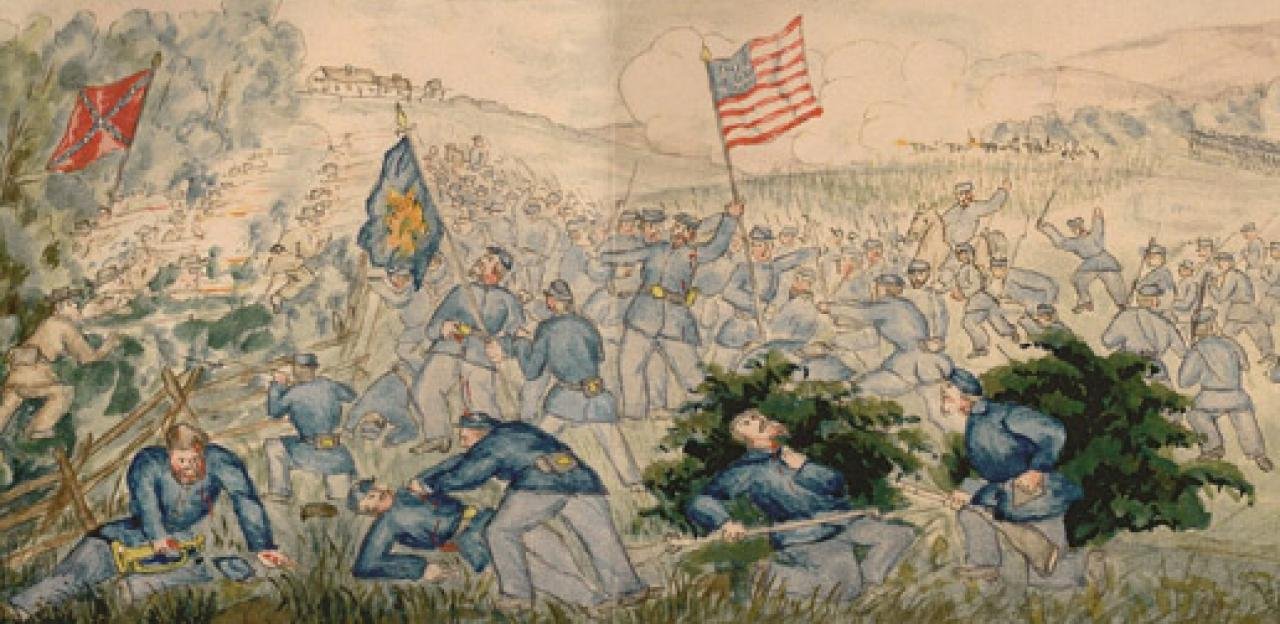Earl butler battle of cross keys – At the Battle of Cross Keys, Earl Butler’s leadership and strategic prowess were instrumental in shaping the course of the American Civil War. His legacy as a military commander continues to inspire awe and admiration, and the battle itself holds a significant place in the conflict’s broader narrative.
Butler’s early military experiences and strategic thinking laid the foundation for his pivotal role in the battle. As the commander of the Confederate forces, he skillfully deployed his troops and made crucial decisions that ultimately influenced the outcome.
Early Life and Career
Earl Butler was born on April 20, 1839, in Frederick County, Maryland. He came from a humble background, with his father working as a farmer and his mother as a homemaker. Butler received a basic education and spent his early years working on the family farm.
In 1861, with the outbreak of the Civil War, Butler enlisted in the Confederate Army. He joined the 1st Maryland Infantry Regiment and quickly rose through the ranks, demonstrating natural leadership abilities and a keen tactical mind.
Military Training and Development
Butler’s military training consisted of both formal instruction and practical experience on the battlefield. He attended the Virginia Military Institute (VMI) for a brief period, where he received training in military strategy and tactics. However, much of his knowledge was gained through his experiences in combat, where he honed his skills as a commander and tactician.
Butler’s military training and experiences shaped his strategic and tactical thinking. He became known for his ability to assess situations quickly, develop effective plans, and lead his troops with determination and courage.
Role in the Battle of Cross Keys
The Battle of Cross Keys was a significant engagement in the Shenandoah Valley during the American Civil War. It occurred on June 8, 1862, as part of Confederate General Thomas “Stonewall” Jackson’s campaign to defend the Shenandoah Valley from Union forces.
Earl Butler, a Confederate brigadier general, played a crucial role in the battle. As commander of the 1st Brigade of Maj. Gen. Richard S. Ewell’s division, Butler was responsible for defending the Confederate left flank.
Butler’s Military Decisions and Tactics, Earl butler battle of cross keys
Butler’s decisions and tactics at Cross Keys were a mix of strengths and weaknesses. On the one hand, he demonstrated a strong sense of initiative and aggressiveness. When Union forces under Brig. Gen. John C.
Fremont attacked his position, Butler counterattacked with vigor, driving them back.
On the other hand, Butler’s tactics were sometimes overly cautious. He hesitated to pursue the retreating Union forces, allowing them to escape and regroup. This indecisiveness prevented him from fully exploiting his success.
Despite his shortcomings, Butler’s performance at Cross Keys was generally regarded as creditable. He helped to stabilize the Confederate line and prevent a Union breakthrough.
Impact of the Battle

The Battle of Cross Keys had both immediate and long-term consequences for the course of the American Civil War. The battle’s outcome directly impacted the Confederate strategy in the Shenandoah Valley, and it also revealed the growing strength and capabilities of the Union Army.
Role of Earl Butler’s Leadership
Earl Butler’s leadership played a critical role in shaping the outcome of the Battle of Cross Keys. His decision to launch a surprise attack on the Confederate forces caught them off guard and gave the Union Army a significant advantage.
Butler’s tactical acumen and his ability to motivate his troops were key factors in the Union victory.
Consequences for the Union and Confederate Forces
The Battle of Cross Keys had a significant impact on both the Union and Confederate forces. For the Union, the victory boosted morale and gave them confidence in their ability to defeat the Confederates. For the Confederates, the defeat was a setback in their campaign to control the Shenandoah Valley.
The battle also exposed weaknesses in the Confederate army, particularly in their lack of artillery and cavalry.
Legacy and Historical Significance
Earl Butler’s legacy as a military leader is marked by his tactical prowess and unwavering determination. His contributions to the American Civil War, particularly at the Battle of Cross Keys, played a crucial role in shaping the conflict’s outcome.
The Battle of Cross Keys holds historical significance as a pivotal moment in the Valley Campaign of 1862. Butler’s victory over a superior Union force demonstrated the tenacity and skill of the Confederate Army and boosted the morale of Southern troops.
Factors Shaping Earl Butler’s Reputation
- Military Accomplishments:Butler’s battlefield successes, including his victory at Cross Keys, earned him recognition as a skilled tactician and courageous commander.
- Leadership Abilities:Butler’s ability to inspire and motivate his troops, even in the face of adversity, contributed to his reputation as an effective leader.
- Post-War Career:After the war, Butler continued to serve his community as a planter and politician, demonstrating his dedication to rebuilding the South.
Helpful Answers: Earl Butler Battle Of Cross Keys
Who was Earl Butler?
Earl Butler was a Confederate general who played a key role in the Battle of Cross Keys.
What was the significance of the Battle of Cross Keys?
The Battle of Cross Keys was a Confederate victory that prevented Union forces from advancing into the Shenandoah Valley.
What was Earl Butler’s role in the Battle of Cross Keys?
Butler commanded the Confederate forces at the Battle of Cross Keys.